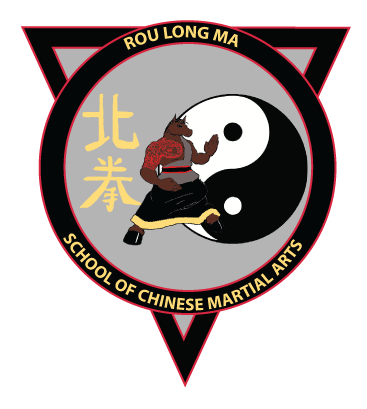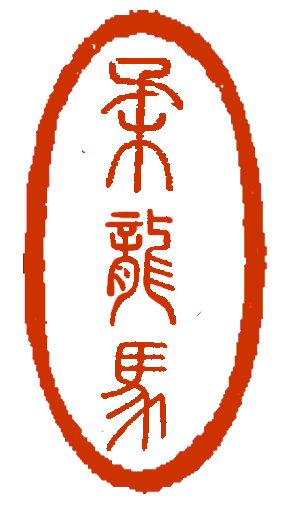|
About
 |
 |
 |
 |
 |
 |
 |
 |
Find us on
 |
| More Information |
 |
 |
|
Martial Etiquette (“Wǔ Dé”)
for Students of Rou Long Ma School of Kung Fu and Taijiquan |
武德 Wǔ Dé or Martial Etiquette in Chinese Martial Arts is a complex subject with many subtleties and nuances. In an attempt to simplify this and help beginners start off on the right foot, we are presenting some guidelines for behavior that students may find useful.
There are two fundamental principles underlying the entire spectrum of Chinese etiquette: modesty and the development of 關係(Guānxì). For even more detail into this subject, please refer to the book Drawing Silk by Paul Gallagher. The following quote from Dr. John Painter’s handout on Wǔ Dé is very interesting and relevant. |
"From both my teacher’s example and my own years of instructing, I have found that schools and teachers with tradition and martial codes of conduct endure with time, but the ones that do not possess these qualities “fade into darkness”.
|
True martial arts masters are often a paradox to western students. Quiet, humble and unassuming, the master’s behavior can sometimes lead students to be overly familiar. It is the student’s behavior that determines the level and quality of the teaching they will receive."
School Etiquette
1. Come to class, and especially to another teacher’s class or workshop, with an open mind: “an empty teacup.” Suspend your skepticism, preconceptions, or prejudices and cultivate modesty. Check your mental “baggage” at the door: you can pick it up on your way out if you still want it.
2. Arrive on time for class. It is preferred that you arrive early (if the space is open) and clean, clear, sweep, rake or tidy up. Once the space is ready, it is perfectly acceptable to practice forms or warm-ups from that class or teacher.
3. Honor the space of teaching with a salute on entering and leaving. This means you salute when entering or leaving the building (if the building is the school, room if the school is located in a larger multi use building) and again when entering or leaving the actual space designated for training if they are different.
4. Honor the art and all who have contributed to it in the person of your teacher. The traditional Chinese martial arts school, or 館 Guǎn is an extended family headed by the teacher or Shī Fù. To give you knowledge is a lifetime responsibility for one’s official teacher. Show respect to teachers and fellow students by properly addressing them(see Chinese titles below). Saluting the teacher is appropriate as a greeting when the teacher enters the class space, as an acknowledgment, a “thank you” for teaching, or a courtesy on parting.
5. Treat your fellow students as brothers and sisters, by giving and helping them to be better. Give without the expectation of receiving.
6. Senior students be humble, treat junior students as equals. Junior students be respectful to your senior, their treatment of you as an equal is a sign they are starting to understand a deeper level. Their humbleness deserves respect. Remember we are all on a long uphill journey with no apparent end.
7. Cell phones and electronic devices should be left off of the mat/out of the training area. If you absolutely must remain available, let the teacher know and make specific arrangement with him/her.
8. If you arrive late, do not barge into class. Stand just outside the training area until the teacher invites you to join.
9. If you leave class for any reason, bow out discreetly. If you return, wait for the teacher to bow you back in.
10. Strive to maintain focus and attentiveness. Even if the material seems familiar, remember, there is always more depth to the material that we can all learn. Be especially aware that class is also for those with less experience.
11. Continue practicing a given exercise until the teacher is ready for the class to move on. This attitude of perseverance develops devotion, and earns respect and personal attention.
12. Be aware of “group qi (ch’i)”: the shared energy of individuals who voluntarily harmonize with one another. If you allow yourself to match the timing and spacing of others around you, “group qi” can reinforce and augment your personal qi and increase your sensitivity.
13. Avoid correcting, teaching, or conversing with other students during class. If the teacher divides the class into small groups, however, you may share personal insights and observations to help others in your group-- but be sure to allow others the same opportunity!
14. Assume that whatever is happening at every moment is for your personal benefit. A comment or exercise introduced to the class as a whole may be especially directed toward a single student, and be exactly what that student needs at that time. That student might be you. A single word or gesture could be worth the cost of an entire course.
15. Assist others in acquiring certain skills when asked to do so by the teacher. This is for your own development as much as for those you are helping.
16. Without being asked, clean the training area and various parts of the school after class. This shows respect for the school and the training, no one is too senior to help with this.
17. Senior students should know and understand these rules as well as be willing and able to explain them to junior students.
18. Help your classmates, your Kung Fu brothers and sisters, by getting together outside of class to practice, share, and encourage one another.
19. On your own, practice whatever you remember, as much as you remember, whenever you like, as often as you can. Even if you feel it might be “incorrect,” practicing something is better than just waiting till the next class.
20. Be an example of courtesy in and out of class, by giving courtesy you earn courtesy and respect.
21. Remember that when you attend other classes and workshops, you represent your teacher; behave accordingly. Your teacher can give you more information about appropriate behavior when visiting other schools and teachers.
|
Chinese /titles
師父 Shī Fù - Teacher Father
師傅 Shī Fù - Teacher/Coach, used when addressing a person of expertise
老師 Lǎo Shī - (old teacher) Senior instructor, teacher
師公 Shī Gōng - (honorable master) Teacher’s Teacher
師兄 Shī Xiōng - Male students who began training before you (senior)
師姐 Shī Jiě - Female students who began training before you (senior)
師弟 Shī Dì - Male student who began training after you.
師妹 Shī Mèi - Female student who began training after you.
師祖 Shī Zǔ - (Founding Teacher) |
|
| |
| |
| |
| |
| |
| |
| |
| |
| |
|

